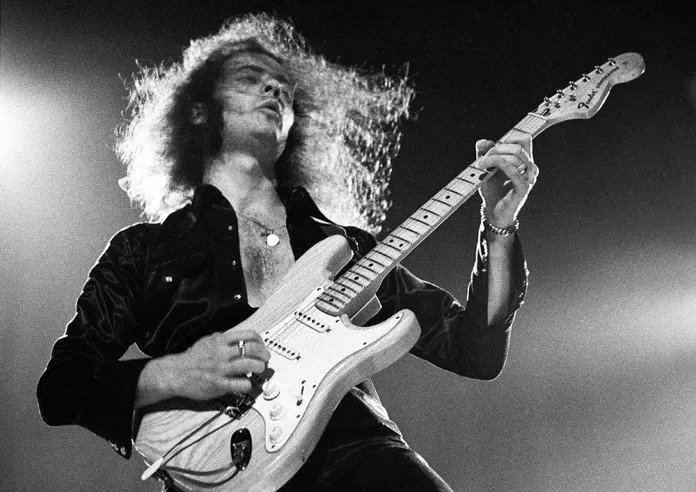Ritchie Blackmore, the iconic axeman instrumental in the inception of Deep Purple during the late 1960s, undeniably stands as one of the foremost guitar virtuosos of his era. His awe-inspiring guitar riffs and emotionally charged solos, both with Deep Purple and his personal outfit, Rainbow, have indelibly etched themselves in the annals of Rock and Roll history, serving as an unceasing wellspring of motivation for innumerable generations of global artists.
Nevertheless, Blackmore was not merely a guitar maestro; his unrestrained viewpoints regarding other musicians were also well-recognized. In the 1980s, he vociferously proclaimed his distaste for a specific ensemble that had surged to prominence during that epoch.
Blackmore’s initial stint with Deep Purple, spanning from 1968 to 1975, set the stage for his distinguished career. After nearly a decade of touring with his personal band, Rainbow, he made a return to Deep Purple alongside the iconic lineup. However, during his absence, the Rock and Roll milieu had experienced a notable transformation, marked by the emergence of new bands and sub-genres.
During the late 1970s and the entirety of the 1980s, one of the most prosperous collectives to impact the musical landscape was The Police. Intriguingly, Blackmore held no particular fondness for this band. In an unreserved conversation with Metal Hammer in 1987, he candidly articulated his aversion for The Police, even extending his view that most groups from that era mirrored their sound.
When queried regarding any reservations about the success of Purple’s reunion, Blackmore vividly recalled an incident during the Australian tour when he comprehended that The Police and akin bands had seized the musical dominion. He exclaimed, “I think it was on the first part of the tour, in Australia. I suddenly realized that there was a gap for this type of music because only ZZ Top were doing that aggressive stuff. Everyone was playing like The Police. And can I state here that I hate The Police?”
He persisted, “There was just no ensemble purveying that rustic form of rock. Our compositions are uncontrived, lacking the luster of superficiality.” Ritchie Blackmore’s forthrightness was conspicuous, leaving no room for equivocation. He responded to a comment by the bassist, Roger Glover, who opined that the world required a group like Deep Purple. Blackmore, once again, minced no words and raised The Police, stating, “It’s quite a profound statement, and Roger doesn’t take drugs. Yeah, I suppose so. That’s the kind of promotional statement that the record company will love. As long as the world doesn’t need The Police, that’s all I care about.”
When The Police coalesced in 1977, Ritchie Blackmore had already dispensed two albums with Rainbow. Sting’s band disbanded in 1983, a mere year before the reformation of Deep Purple and the release of the album “Perfect Strangers” in 1984. It is intriguing to observe that Ritchie Blackmore is junior to The Police’s guitarist, Andy Summers, by three years. Blackmore’s birth year is 1945, while Summers’ is 1942. The drummer, Stewart Copeland, lags behind Summers by a decade, and the bassist, Sting, was born 11 years subsequent to the guitarist.
Despite Ritchie Blackmore’s condemnation of The Police, the band achieved a phenomenal degree of prosperity. They issued solely five studio records but managed to ascend as one of the highest-selling collectives in history, with an estimated sales tally exceeding 75 million albums globally. The Police maintained their active status from 1977 to 1983, briefly regrouping for a few performances in 2007. However, Sting publicly proclaimed that they would not reunite again. Intriguingly, this perspective aligns with the sentiments of Ritchie Blackmore and the present lineup of Deep Purple, who have also elected to remain detached.
In summation, Ritchie Blackmore’s candid evaluation of The Police in the 1980s provides an engrossing insight into the domain of a rock luminary unafraid to articulate his perspectives concerning the evolving musical landscape. While The Police may not have catered to his tastes, it is unassailable that the band’s enduring legacy and their influence on the music industry during that epoch serve as a testament to the multifariousness of musical preferences and the intricate dynamics of the perpetually evolving Rock and Roll panorama.
